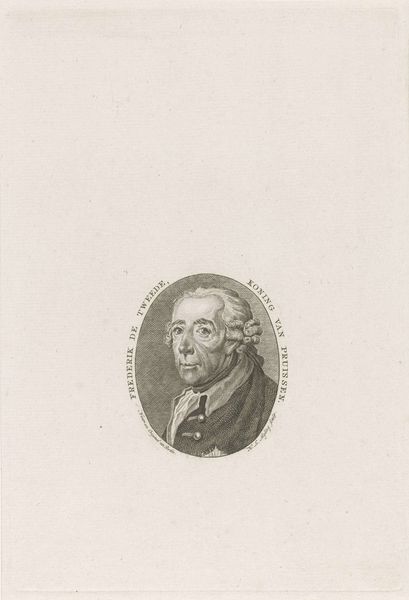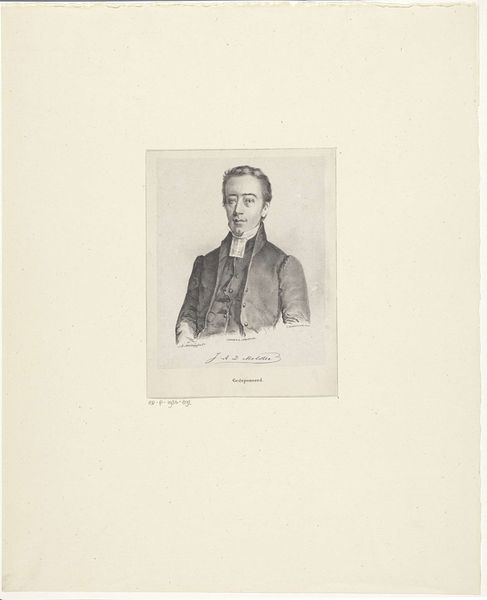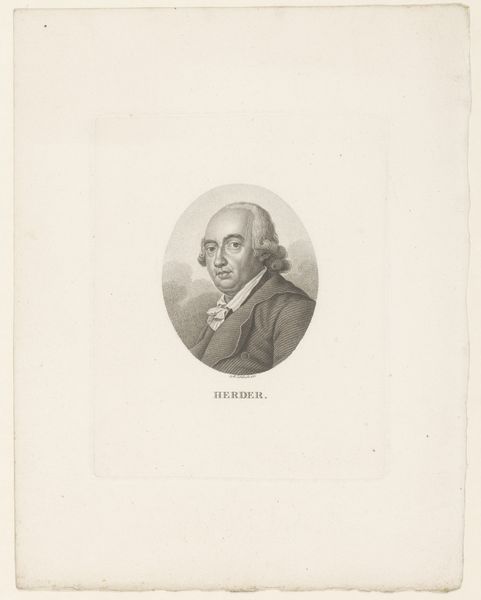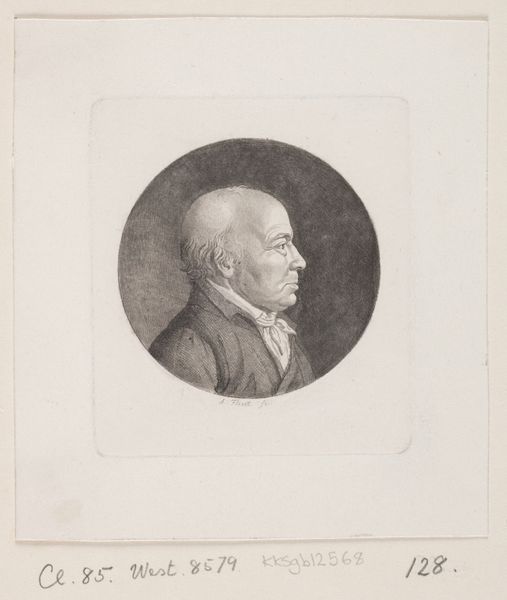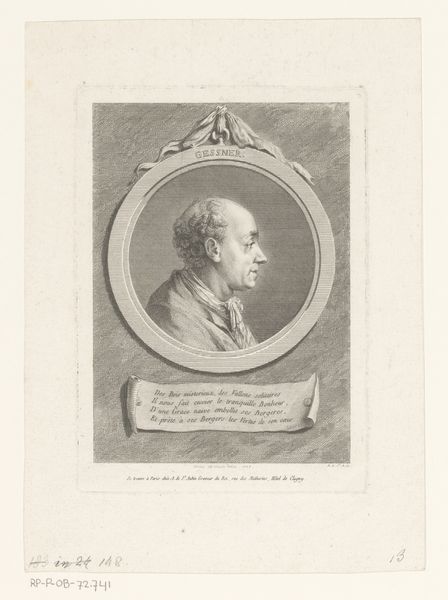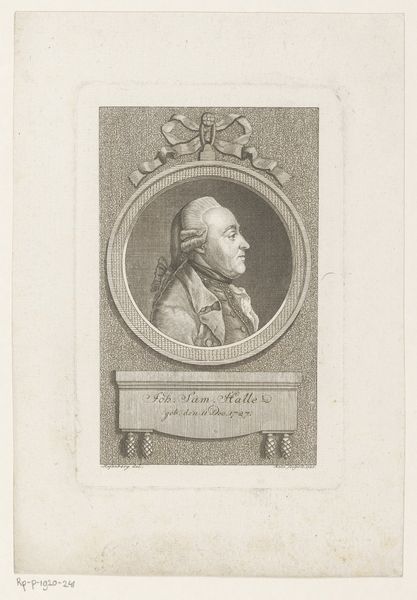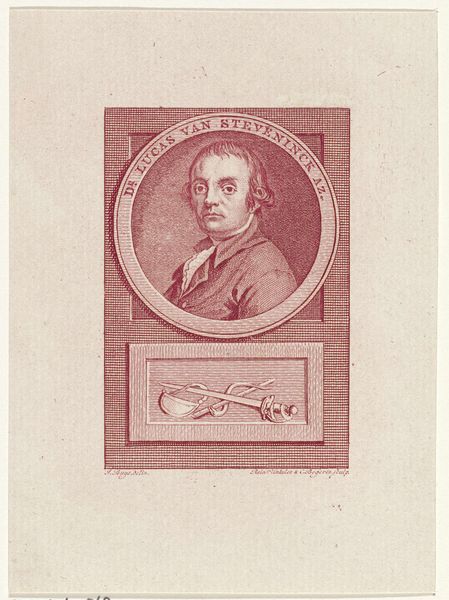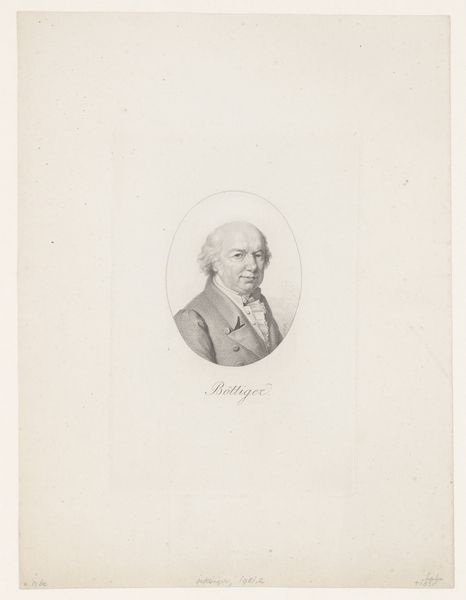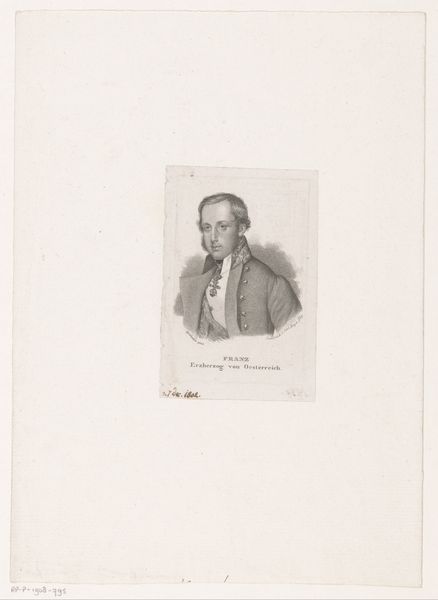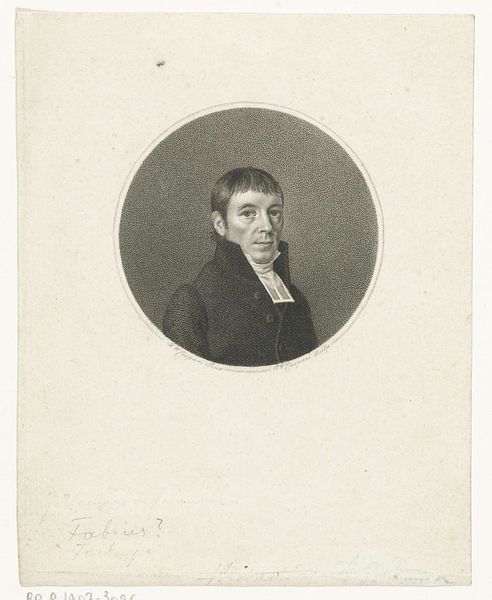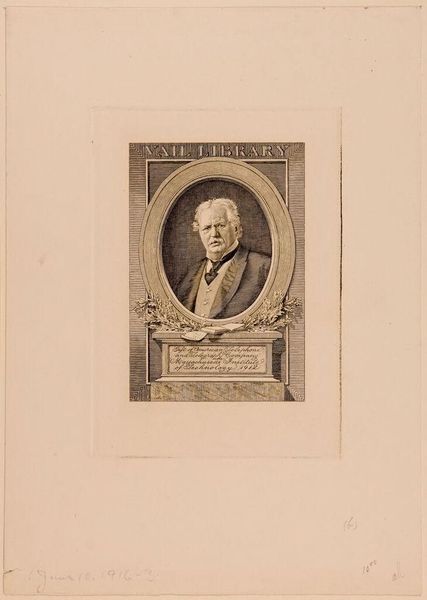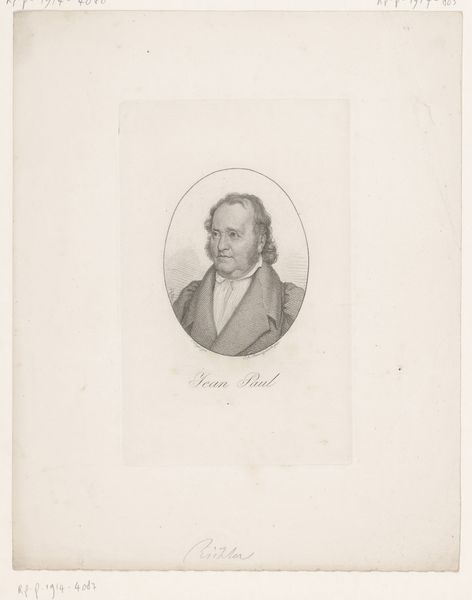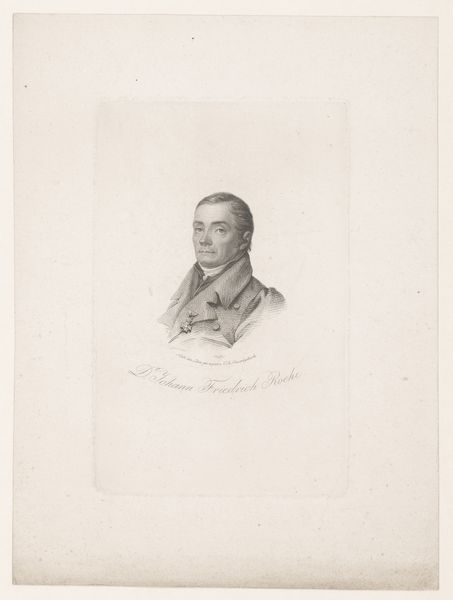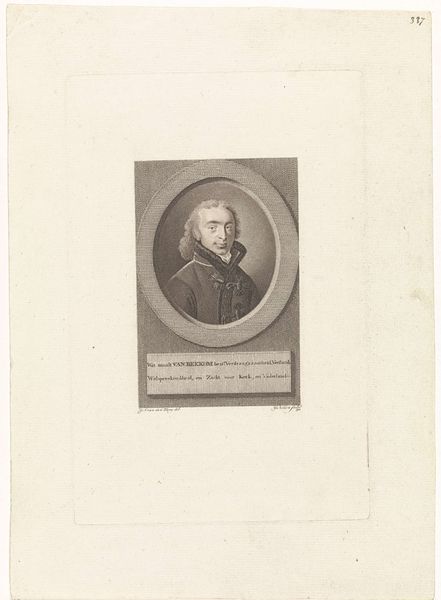
print, etching, engraving
#
portrait
#
neoclacissism
# print
#
etching
#
old engraving style
#
engraving
#
realism
Dimensions: height 130 mm, width 124 mm
Copyright: Rijks Museum: Open Domain
This is a portrait of the author Johannes Cornelisz Hazeu, made in 1789 by Cornelis Brouwer. It's an etching, a printmaking process where lines are incised into a metal plate, inked, and then pressed onto paper. The precision of etching allowed Brouwer to capture fine details, from Hazeu's powdered wig to the subtle folds of his jacket. But beyond mere likeness, the print speaks volumes about the social context of its creation. Etchings like this were relatively reproducible, making images more accessible to a wider audience than painted portraits. This reflects the growing importance of the publishing industry, and the rise of a middle class with intellectual and cultural aspirations. Consider the labor involved: the skilled hand of the etcher, the production of paper, and the distribution of the final print. All point to a complex network of production and consumption that shapes the meaning of the artwork. It serves as a reminder that artistic practices are always embedded in material conditions, and social relations.
Comments
No comments
Be the first to comment and join the conversation on the ultimate creative platform.
